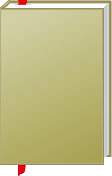

 |

|

The average rating for Success from Failure That Changed History History Mysteries based on 2 reviews is 4.5 stars.
Review # 1 was written on 2015-08-02 00:00:00 Joe Sherburne Joe SherburneI didn't know this was still in print, especially not new editions. I've owned at least three full sets of the 1956 edition throughout my life, though, and I can't imagine removing any part of it, just adding new pieces. This isn't dry, abstract math. This is living, breathing, and accessible independent essays, explanations, biographies, histories, and snippets that touch on most aspect of the math community. Anyone can pick up a volume of this, browse for a few minutes, and find some section interesting and educational. It's perfect to just have on the shelf in easy reach and grab for a minute or two on a break. And make sure kids grow up with it handy. |
Review # 2 was written on 2015-08-05 00:00:00 Blase Sorritelli Blase Sorritelli7/29-Today I read 2 essays about Newton and one about Gauss, as well as some of The Geometry by Descartes and and an analysis of infintesmals by Bishop Berkeley. Although the beauty of getting drawn into trying to understand the notations and drawings has its allure, it is really the biographical information that I am looking for in order to hook my students. The most singular fact about Newton and Gauss seems to be their ability to hold problems in their head for long periods of time. Most of the information about Newton I already had from the fabulous book, The Calculus Wars--I think more stuff about his work for the Mint would interest my students though. I learned more about Gauss this morning, and Bell's excellent essay made me want to learn more about him. Nature of Mathematics by Jourdain The following ideas for class discussions. Why did Descartes invent the notation of analytic Geometry? Why do we say -6 but not +6? (This is one that my students struggle with all the time. A definition of the tangent as given by the Greeks "a straight line through the point such that between it and the curve no other straight line can be drawn." And a great lesson activity for between. The Great Mathematicians by Robert Turnbull Napier spending 25 years on his log tables, I can't even get my students to spend 25 minutes on log problems. Must look at Napier's spherical trigonometry. Newton considered Euclid's elements a trifling work. And perhaps my favorite thought of the day describing light as either undulatory or copuscular. The Rhind Papyrus by James R. Newman--didn't really grab me. Observations on Archimedes by Plutarch and others. The 3 different stories about his death and by remembrance of the Dutch puzzle and Descartes reminds me that I must share the nerdswiped xkcd comic with my students. Maybe on the syllabus. Read a bit on The Greek Mathematics, which was incredibly dull, than a good essay on Kepler by Locke. No crazy new teaching ideas. |
CAN'T FIND WHAT YOU'RE LOOKING FOR? CLICK HERE!!!